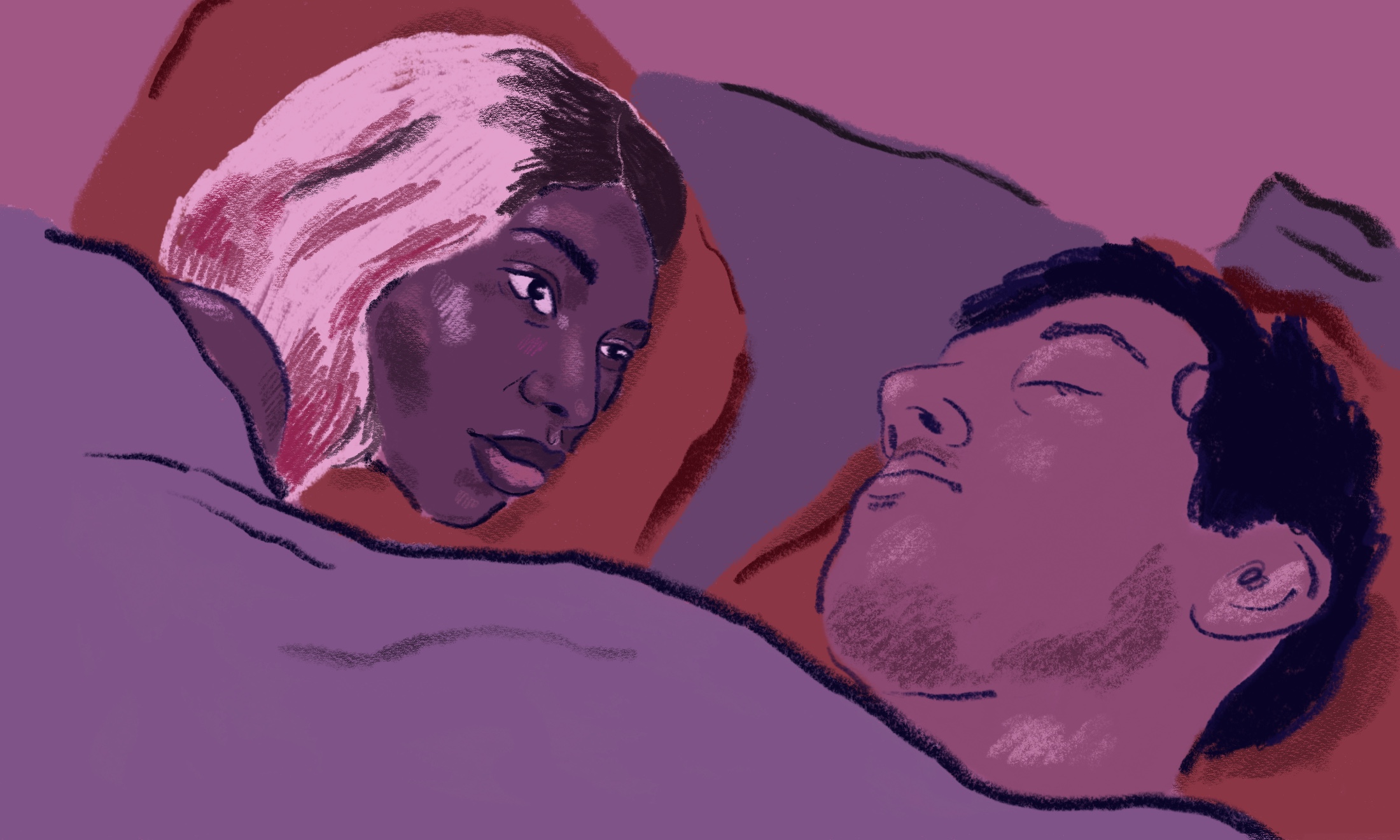Fuck Tim Westwood and his enablers
Tim Westwood’s overdue reckoning is here – but those who enabled him must be held accountable too.
Tobi Kyeremateng
29 Apr 2022

The Radio Academy via Flickr/Canva
Content warning: This article contains mention of sexual assault.
At the beginning of the BBC Three documentary Tim Westwood: Abuse of Power, a 30-second montage plays. Rappers and MCs from all over the world herald the DJ’s name as if it were a holy prayer: Jay Z, 50 Cent, JME, Fat Joe – name an artist and they’ve likely heard of him. From winning multiple trophies at some of the British music industry’s most recognised award shows such as the MOBOs, winning Best Radio DJ in 2000, 2003, 2005, 2007 and 2008, and the Legacy Award at the 2016 GRM Daily Rated Awards, to presenting television shows such as MTV UK’s Pimp My Ride, it is clear that the 64-year-old popular DJ has the music industry on lock. Now it appears that this ‘legendary status’ is exactly what may have helped enable his alleged predatory behaviour and protected him from scrutiny for more than two decades. Until now.
In a new report by the BBC and the Guardian, seven Black women have accused Tim Westwood of “predatory and unwanted sexual behaviour” in several incidents between 1992 and 2017. Both outlets reported that Westwood “strenuously denied all allegations”. The testimonies come after decades of allegations on social media and even a public petition calling for an investigation into his behaviour. A day after the news broke, Global Media confirmed that Westwood had stepped down from his Capital Xtra radio show “until further notice”.
I feel everything all at once; joy in the face of hope for the women who have come forward with allegations about Westwood’s immoral behaviour are finally being heard, and exhaustion on behalf of those that have recounted their experiences dating back as far as the 1990s and early 2000s. But mostly, I feel rage. Rage that it has taken so long for the not-so-secretly-discussed stream of abuse allegations to be investigated and finally brought out into the public light, and rage against all the establishments and individuals that have propped him up and protected him all this time.
“It has taken so long for the not-so-secretly-discussed stream of abuse allegations to be investigated and finally brought out into the public light”
The Guardian reported that “some of the women say they felt unable to talk about their experiences before. They feared their accounts would not be taken seriously because they were so young at the time the alleged incidents happened – and that racial discrimination would also lead people to minimise, dismiss, or ignore their claims.” And, who can blame them? Black women past and present have often discussed their experiences of encountering men within the music industry who intentionally seek out young women to abuse their positions of power: from women musicians being coerced at studio sessions, to artists like rapper Latto claiming a male feature on her latest album sexually harassed her.
Since the early 1980s, Westwood has been known for his eccentric interview styles and ability to break new artists into the music industry, which led to him quickly being dubbed a cultural pioneer of Black music globally. There is something about his voyeuristic approach to all things Black music, combined with his floaty mocking accent (which he has upheld over the decades, to be fair) – despite his privileged background as a private school-educated Bishop’s son – that gained him exclusive access to some of the biggest MCs and rappers from the US and UK, and primetime slots on radio stations such as BBC 1Xtra, Choice FM and its descendant, Capital Xtra.
Let’s be clear: Tim Westwood’s status as a pioneer and ‘gatekeeper’ within the Black music industry has a direct correlation with the lack of accountability from his peers and the establishments that have supported his career. Those that have benefitted in one way or another from Westwood’s positionality have been very clear that their moral pendulum swings in whichever direction offers the most for their individual success, whether that be radio play, exposure, or access to an industry that is often said to operate on a ‘who you know’ basis. The industry itself has benefited from a white man performing a minstrel act to predominately Black audiences while utilising his power and privileges to elevate himself into a position where he gets to handpick which careers to ‘make’ or ‘break’. Every so often on social media, Westwood’s Avengers emerge to silence discussions on abuse allegations, reading from the same hymn book that proclaims how Westwood is above questioning because of what he has done ‘for the culture’.
“Tim Westwood’s status as a pioneer and ‘gatekeeper’ within the Black music industry has a direct correlation with the lack of accountability from his peers and the establishments that have supported his career”
Who is ‘the culture’ really for when white men are so easily put on a pedestal while Black women bear the brunt of the ramifications of this power? The progression of Black genres surely does not need to discard Black women in favour of the shallow individual advancement of the men in the industry. The industry continues to fail women time and time again while pretending it doesn’t. This comes only four years after the demise of digital radio station Radar Radio after a series of sexual assault, racism and homophobia allegations – an example which, once again, seems to show how privileged white men are knighted as gatekeepers of Black culture while neglecting any duties of care or basic humanity towards women of colour.
‘The culture’ seems more than willing to act without ethics, morals or humanity, in the hopes that posterity will only focus on the ‘good’ that has been achieved. The energy given to shuck and jive for white gatekeepers that exist outside of the racial and cultural context of Black music could have easily been transferred into action. Instead, Black women are left to speak amongst themselves and crowdsource support in silos.
“Instead, Black women are left to speak amongst themselves and crowdsource support in silos”
There’s an odd irony in the BBC collaborating on this investigation, given that the institution was one of Westwood’s main employers for two decades. The BBC’s own documentary included a response from the BBC to a Freedom of Information request, saying they can “neither confirm nor deny” that any complaints were made to them during Westwood’s 20-year stint at the national broadcaster. The Director-General of the BBC later said that “he had found no evidence of complaints made to the corporation about the DJ while he was at the BBC.”
It should be noted that this is not the first time an attempt to air allegations about Westwood has been made. At gal-dem, Sophia Leonie, Tara Joshi, Charlie Brinkhurst-Cuff, and Kemi Alemoru were investigating similar allegations against Tim Westwood over the last two years but faced multiple challenges. Journalists including Iman Amrani and Nadine White too have shared their experiences of trying to cover this story and the difficulties they faced. When White approached Global Media two years ago about allegations about Westwood, the organisation chose to continue supporting Westwood’s weekly show and left their staff to face abuse due to the company’s silence.
The blame must be shared amongst those who made the conscious choice to silence discussions about Westwood. When such allegations come to light, the responsibility must equally lie with the establishments and individuals that refused to take action. No level of status can wash away the trauma inflicted on those that experience abuse, but for now, we must collectively elevate the voices of those who have been screaming into the void for an eternity, waiting to be heard, protected and believed.
Our groundbreaking journalism relies on the crucial support of a community of gal-dem members. We would not be able to continue to hold truth to power in this industry without them, and you can support us from £5 per month – less than a weekly coffee.

I didn’t receive justice when I was assaulted in Qatar. This year’s World Cup has reopened painful memories

We need to talk about the music industry’s open secrets

How I May Destroy You is helping make stealthing a crime in Chile






